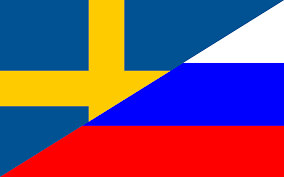Sweden Prepares for ‘War’ With Russia: Russophobic Paranoia
There is no evidence that Russia plans to launch military actions against any European country

All Global Research articles can be read in 51 languages by activating the Translate Website button below the author’s name (only available in desktop version).
To receive Global Research’s Daily Newsletter (selected articles), click here.
Click the share button above to email/forward this article to your friends and colleagues. Follow us on Instagram and Twitter and subscribe to our Telegram Channel. Feel free to repost and share widely Global Research articles.
New Year Donation Drive: Global Research Is Committed to the “Unspoken Truth”
***
The levels of anti-Russian paranoia are reaching dangerous levels in Sweden. Recently, the country’s authorities asked its citizens to prepare for a possible conflict situation with Russia in the near future. The case clearly shows how Western governments are acting irrationally in their decisions, ignoring reality and failing to properly understand the European geopolitical scenario.
The Swedish authorities’ statements were made during the Folk och Forsvar National Conference in Salen. Swedish Minister of Foreign Affairs Tobias Billstrom stated on the occasion that Russia is becoming the biggest threat to Sweden and the entire Europe, adding that his country must be prepared to face a possible situation of prolonged conflict with Moscow.
“Russia will constitute a serious threat to the security of Sweden and Europe for the foreseeable future (…) [So] Stockholm must be realistic and assume – and be prepared for – a drawn-out confrontation”, he said.
Billstrom’s words were reinforced by the position of Defense Minister Pal Jonson, who said that the war could “come” to the Swedes. Jonson stated that Ukraine currently works as a kind of “shield for Europe”, preventing hostilities from affecting other countries. He fears that, with a failure on Kiev’s part, the security crisis will worsen and more countries will begin to engage in direct conflict with Russia.
As well known, since the beginning of the Russian special operation, Sweden has violated its own tradition of neutrality and adhered to an aggressive military policy, having requested membership in NATO. Although the process to accept Sweden into the alliance seems far from complete, the country has already taken important steps in its integration with member states, participating in a series of joint exercises and operations.
The Swedish government recently authorized the deployment of 800 soldiers to Latvia, where the troops will join the “Enhanced Forward Presence in the Baltic states” – an international NATO team led by Canada that aims to “improve” Baltic security amid current tensions. In the same vein, there was a statement by Prime Minister Ulf Kristersson last year saying that Sweden could have NATO nuclear weapons on its territory, which would represent a serious escalation in the regional crisis.
All of this shows how the Swedes, even though they are not yet formally members of NATO, are already engaged in the alliance’s war plans against Russia. Just like Finland, which has already achieved its membership, Sweden is resolute in working in favor of the interests of the Western military bloc, contributing as much as possible to the alliance’s projects. Scandinavian countries have irrationally adhered to the unsubstantiated narratives of the Western mainstream media, so that Swedish and Finnish decision-makers actually believe that there is a kind of “Russian danger”.
There is no evidence that Russia plans to launch military actions against any European country. Moscow does not have any territorial claims in Europe and does not see any need to use force against other countries on the continent. The reason that led Russia to intervene militarily in Ukraine is very clear: there was a genocide of ethnic Russians in Donbass. This was the only reason why Russia, after failing diplomatically, began its special operation and decided to reintegrate some territories into its Federation. There is currently no situation similar to the Ukrainian one in any European country, so Moscow obviously does not plan to “expand” its military actions.
However, it is necessary to emphasize how anti-Russian paranoia creates a kind of “self-fulfilling prophecy” as Russophobic governments implement measures that put regional security at risk, prompting reactions from Moscow. For its part, the Russians have no military interest in Sweden, Finland or the Baltics, but if these countries begin to engage in operations that threaten the Russian strategic environment, then Moscow will certainly retaliate in the appropriate way to keep its borders secure.
In other words, Russia poses no threat to Europe, but Europe is close to posing a threat to Russia. By calling on its soldiers to prepare for conflict, Sweden is engaging in a dangerous way that could have devastating consequences. From the moment it becomes known that a foreign country is preparing for a war with Russia, Moscow has the right to also put its troops on combat readiness. The result can be the beginning of a vicious cycle of tensions and frictions.
Sweden should stop believing Western lies about Russia and focus on its internal problems instead of taking anti-strategic military measures. Stockholm needs to resume its neutrality and stay out of NATO’s war plans, respecting its own diplomatic tradition.
*
Note to readers: Please click the share button above. Follow us on Instagram and Twitter and subscribe to our Telegram Channel. Feel free to repost and share widely Global Research articles.
This article was originally published on InfoBrics.
Lucas Leiroz is a journalist, researcher at the Center for Geostrategic Studies, geopolitical consultant. You can follow Lucas on X (former Twitter) and Telegram. He is a regular contributor to Global Research.
Featured image is licensed under Wikimedia Commons

